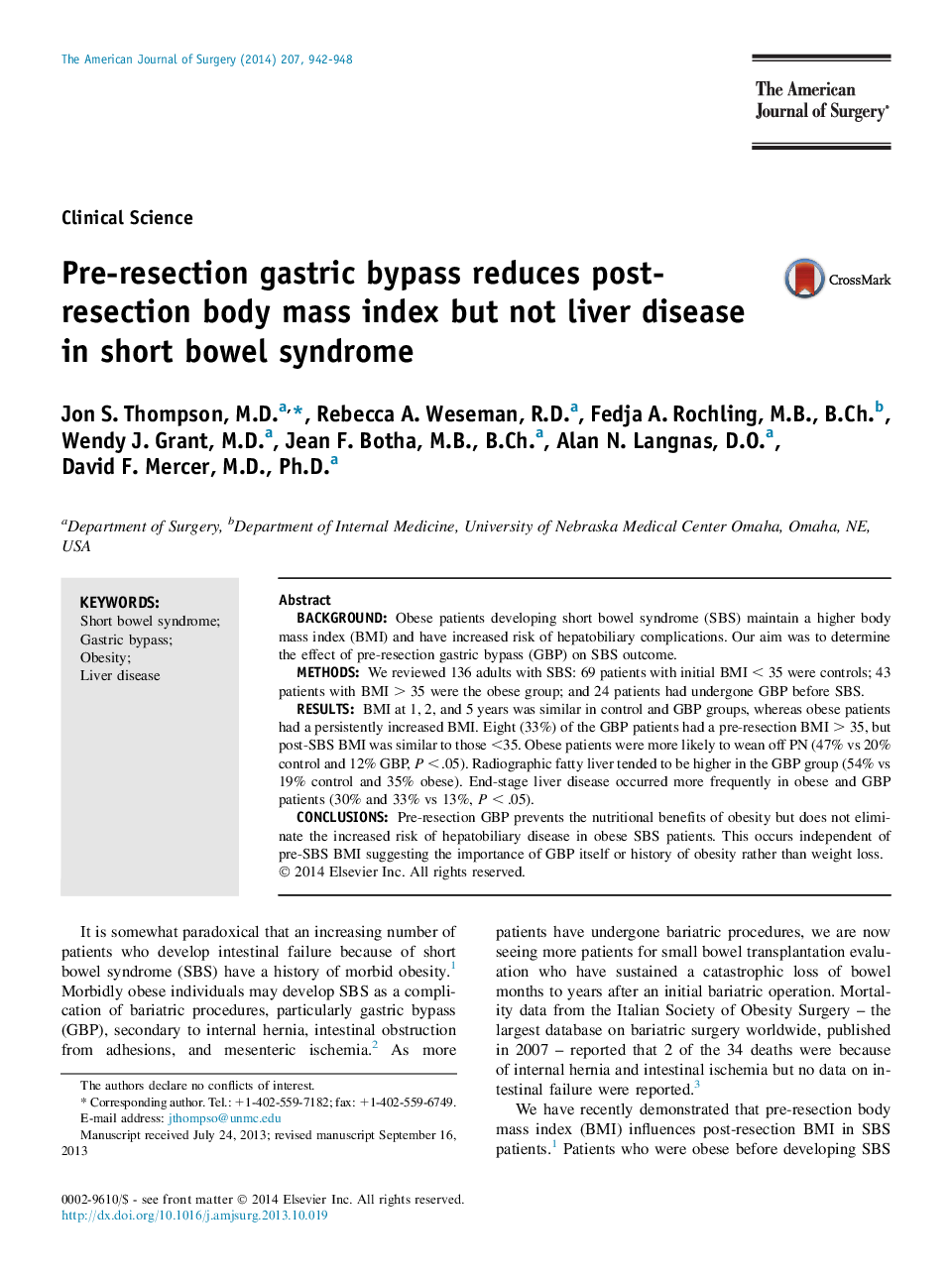| Article ID | Journal | Published Year | Pages | File Type |
|---|---|---|---|---|
| 4278903 | The American Journal of Surgery | 2014 | 7 Pages |
BackgroundObese patients developing short bowel syndrome (SBS) maintain a higher body mass index (BMI) and have increased risk of hepatobiliary complications. Our aim was to determine the effect of pre-resection gastric bypass (GBP) on SBS outcome.MethodsWe reviewed 136 adults with SBS: 69 patients with initial BMI < 35 were controls; 43 patients with BMI > 35 were the obese group; and 24 patients had undergone GBP before SBS.ResultsBMI at 1, 2, and 5 years was similar in control and GBP groups, whereas obese patients had a persistently increased BMI. Eight (33%) of the GBP patients had a pre-resection BMI > 35, but post-SBS BMI was similar to those <35. Obese patients were more likely to wean off PN (47% vs 20% control and 12% GBP, P < .05). Radiographic fatty liver tended to be higher in the GBP group (54% vs 19% control and 35% obese). End-stage liver disease occurred more frequently in obese and GBP patients (30% and 33% vs 13%, P < .05).ConclusionsPre-resection GBP prevents the nutritional benefits of obesity but does not eliminate the increased risk of hepatobiliary disease in obese SBS patients. This occurs independent of pre-SBS BMI suggesting the importance of GBP itself or history of obesity rather than weight loss.
